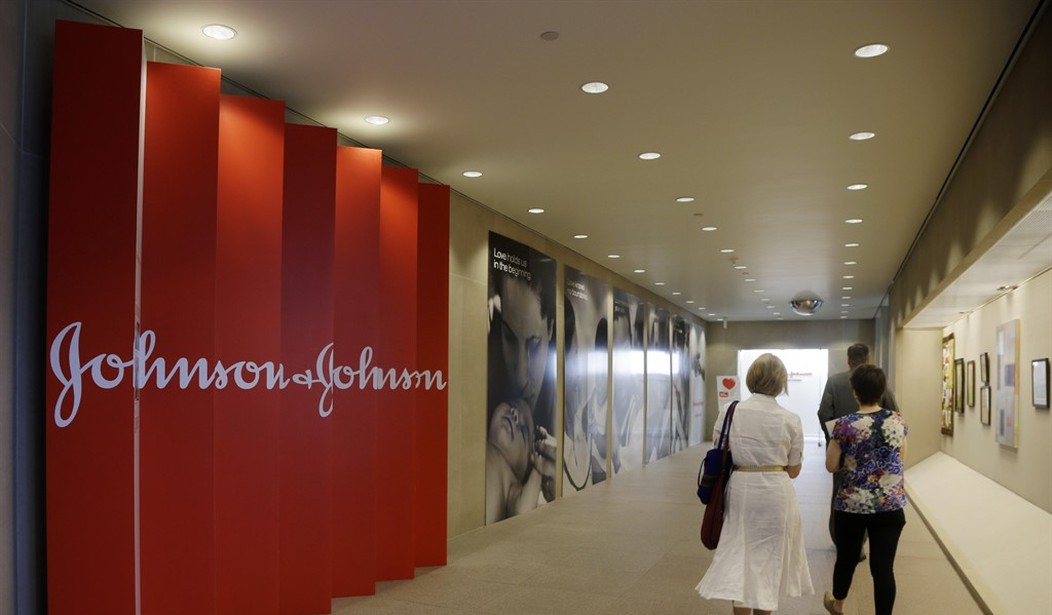Think maybe India would be willing to take our remaining supply of Johnson & Johnson, since hardly anyone here seems to want it anymore?
Or has the vaccine’s reputation been so thoroughly ruined by the blood-clot evidence and FDA “pause” that Indians would prefer to take their chances with “double-mutant” COVID instead?
Not only was this predictable, it was predicted:

The good news is that jitters about J&J haven’t spilled over to the other vaccines, a finding also reflected in other polls. Asked whether they think Pfizer is very or somewhat safe, 73 percent say yes; 71 percent say the same about Moderna. For J&J, just 46 percent do. And fewer Americans currently say they probably or definitely won’t get vaccinated (24 percent) than said so when ABC/WaPo asked the same question in January (32 percent). The J&J clusterfark clearly hasn’t put Americans off vaccination entirely.
But another 24 percent now say they’re less willing to get vaccinated, period, than they were before the J&J pause. Republicans, who are more vaccine-hesitant generally, are also more hesitant about J&J than Democrats are, with 34 percent of Dems saying they’re still willing to get that vaccine post-pause versus just 14 percent of GOPers. That’s unfortunate because J&J was our best shot at enticing skeptical rural residents into getting immunized. It’s only one shot and it doesn’t need to be stored in special conditions so it was a logical fit for people who are reluctant. Now, thanks to the blood-clot scare and the pause, it’s a harder sell to those people than Pfizer or Moderna is.
How many lives will be lost due to the Johnson & Johnson panic? It’s impossible to know how many will forgo vaccination entirely because of it but it’s a cinch that that number will be greater than the handful of new blood-clot cases discovered by the CDC during its investigation of the vaccine during the pause. Writer James Surowiecki guesstimates that the pause itself, however brief, will end up costing many more lives than the clotting side effects will:
What this means is that the decision to keep the vaccine pause in place amounted to a decision not to vaccinate lots of people who otherwise would have gotten vaccinated. Some of those people who did not get vaccinated have been or will be infected with Covid, and some of them will be hospitalized, and some will die. That was a concrete and undeniable consequence of the decision to extend the pause…
At Friday’s meeting, the CDC’s Sara Oliver said that over the next 6 months, the J&J vaccine would be expected to result in 800–3500 fewer ICU admissions, and 600–1400 fewer deaths, while causing 26–45 cases of clotting. If you extrapolate from those numbers, they suggest that if the pause had ended 10 days earlier, somewhere between 33 and 75 lives would have been saved, at the cost of 1–2 cases of clotting.
Right, but there’s an important variable missing from that calculation, namely, the number of people who would have been willing to take the J&J vaccine before the blood-clot news but would have refused the shot afterward even if the FDA hadn’t paused it. I’ve made that point before: The “pause” itself probably didn’t scare people away from J&J as much as the reason for the pause did. Ethically, the FDA had to reveal what it knew about clotting issues once it had the data in hand so that Americans who were considering getting J&J would be able to make a fully informed decision. Inevitably, many of them (although not all) would have backed out because of fears of side effects even if the FDA allowed vaccine centers to continue dispensing Johnson & Johnson. The pause itself may have put even more people off the product than the blood-clot data alone did, in which case Surowiecki might be right that we lost more lives by pausing than we did by proceeding with J&J and attaching a warning. But we were destined to lose some customers as soon as the news about the clots began circulating.
And now it’s anyone’s guess if even foreign countries would be willing to take our J&J supply off of our hands. “If people in those countries think, you are giving us the dangerous vaccines and keeping the better ones for [yourselves], then we just won’t get vaccinated,” said one virologist to WaPo of the idea.
What may end up happening in rural areas is that some people will take the plunge on getting a first dose of Pfizer and Moderna and then just not show up for their second. Some eight percent of Americans have already done that, whether because they couldn’t get organized for the second appointment or because they’re afraid of the nasty side effects that some people experience after their second dose. One is better than none — the mRNA vaccines provide 80 percent protection after a single shot — but the immunity might not last long and those who’ve had only one shot may be susceptible to dangerous variants. Still, you can imagine how some vaccine-hesitant people might settle on one dose as a “compromise” between getting fully vaccinated and remaining completely exposed. In a world where J&J still seemed appealing they would have opted for that instead. But in the world we live in, they may decide to treat Pfizer and Moderna as de facto “one shot” vaccines and take their chances with COVID having been only partially vaccinated.








